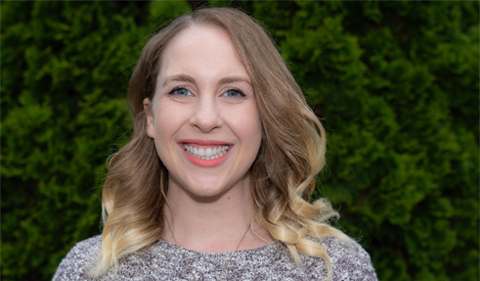Dr. Lauren Elliott-Dorans was recently invited to be a guest contributor for the American Political Science Association’s RAISE the Vote campaign, which features blog posts from political scientists who teach and conduct research on the area of civic participation.
Elliott-Dorans is an Assistant Professor of Instruction in Political Science. She is also an Ohio University alumna, having earned a B.A. in Psychology in 2008 and an M.A. in Political Science in 2009 from the College of Arts & Sciences.
Her recent post,”Fostering Youth Participation in the Ohio primaries,” she details how faculty can foster youth participation in the upcoming primaries.
“The Ohio primaries are almost here! As a political science professor, it is my goal to help make sure that students are empowered to participate. Although only the Democratic party will hold a presidential primary this year, it’s important for students of both parties to know about the process. Not only will the Republicans be hosting their own presidential primaries in a few years, but there are also primary contests occurring for Republicans down the ballot this year. In this blog post, I will explain the challenges associated with encouraging primary participation among students and offer insight into how I address these obstacles in my courses,” Elliott-Dorans says, introducing her post.
She notes that the primary process “can be a hurdle for many people,” with much less fanfare and attention that general elections.
“In Ohio, our primary this year is on St. Patrick’s Day (March 17, 2020). Momentous as this holiday may be, most of us don’t associate it with an election. Similarly, many people forget that they must register to vote 30 days before the election (Tuesday, Feb. 18, 2020). During the general election, you can’t walk through campus without someone asking you if you’re registered to vote, but there’s much less on-campus mobilization during primary season. Therefore, it’s even more important that professors do what they can to ensure that students know about these important dates, and the logistics for how to engage in the process.”
Another confusion is the difference between open and closed primaries, Elliott-Dorans said.
“Ohio has an open primary, but voters have to request either a Democratic or Republican ballot. That means you can either vote in the Democratic or Republican primary; you cannot split your ballot. You do not need to be registered with either party to request their ballot, and you are welcome to vote for candidates of both parties when the general election comes around. Additionally, requesting the other party’s ballot in the next primary is just as easy – you can switch back and forth as you please.”




















Comments